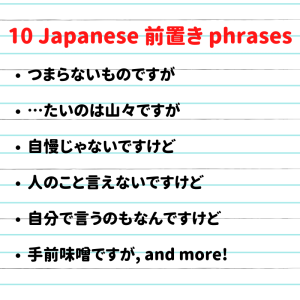Yomi ぷろおどろきや Rōmaji puro odoroki ya Type slang Literal Meaning a professional surprised man/woman; a freak-out specialist Meaning a person who excitedly shares state-of-the-art tools/technologies like ChatGPT on social media with hyperbole and also with hallucination/overstatement at times based on a few cherry-picked examples (usually to become an “influencer”) Additional Info This is a brand new slang term that has been gradually getting popular on Twitter since Mar 2023, following the proliferation of those people who excitably share the latest news about ChatGPT/GPT-4. Allegedly, there are several characteristics of “professional surprised men/women” as follows: have zero or little experience in research or programming as such, often explain things with hallucination/overstatement/overgeneralisation…Read More
Japanese Slang するする詐欺 (suru suru sagi, “do do fraud”)
Definition In Japanese, するする詐欺 (suru-suru sagi) — or やるやる詐欺 (yaru-yaru sagi) — literally means “do-do fraud”. Figuratively, it means that someone repeatedly says they will do something and do nothing. In other words, it describes the behaviour of people who are all talk and no action. The duplication of the verb emphasises that one has promised to do something multiple times without taking any action. Note that する (suru) or やる (yaru) in this expression can be replaced by any verb depending on the context (e.g. 仕事辞める辞める詐欺, “I’m-gonna-quit-quit-my-job fraud”); see more examples at the bottom. Usage This slang expression can be used for something either trivial or nontrivial. For instance,…Read More
“High School Debut” in Japanese: Meaning and Examples
Definition 高校デビュー (koukou debyū) is a Japanese slang word that literally means “high school debut”. This term describes an introvert who, upon entering high school, tries to change himself/herself dramatically and becomes a social and extroverted person. Some people successfully reinvent themselves and fly up the social ladder at school, while others fail to keep up the masquerade and fall back to the bottom of the social hierarchy. Example Here are some examples of common behaviour when one “debuts” at high school (or university): start using contact lenses instead of wearing glasses dye their hair light to offset their gloomy vibe become (awkwardly) hyper around their new friends start using…Read More
10 Japanese 前置き (Maeoki) to Sound Modest and Reserved
In Japanese, people often put 前置き (maeoki), “introductory/opening expressions” before stating their thoughts to sound modest and polite or to hedge the risk of criticism (i.e. to cover one’s ass). This post introduces various kinds of Japanese maeoki expressions you can use to sound like Japanese! つまらないものですが Yomi tsumaranai mono desu ga Meaning This is not much, but; This is just a little something, but Usage It literally means “(this is) not interesting”. It is often used when one gives a gift to someone in a very humble way. It is rather a traditional phrase and not commonly used by young people, but still often heard in Japanese anime and…Read More
Meaning of ドーハの奇跡 “Miracle in Doha” in Japanese
Definition ドーハの奇跡 (dōha no kiseki, “The Miracle in/of Doha”) refers to Japan’s seismic underdog victories in FIFA World Cup 2022 over the two European powerhouses, Spain (on 1 Dec 2022) and Germany (on 23 Nov 2022). In both matches, Japan was losing 0-1 in the first half with a very low ball possession rate (e.g. 14% against Spain), yet turned the game around and defeated the opponents 2-1. As a consequence, against all odds, Japan became the winner of the group league and advanced to the round of 16, along with Spain; Germany and Costa Rica, on the other hand, were eliminated from the tournament. This term was coined in…Read More
- 1
- 2
- 3
- …
- 38
- Next Page »



